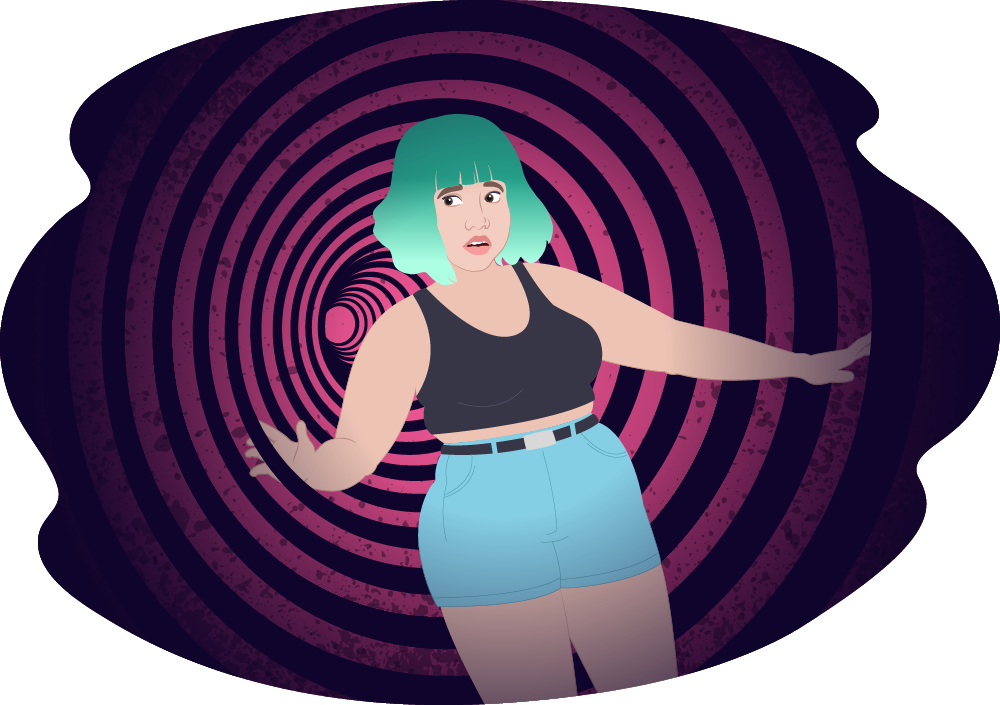Supporting someone with schizophrenia
If you know someone with schizophrenia or experiencing psychosis and don’t ...
READ MELet’s look at what schizophrenia is, and how to cope and get support if you have this condition.

It is a very common condition, affecting 1 in 100 people.
Contrary to media representation and popular belief, schizophrenia does not involve having ‘split’ or ‘multiple’ personalities.
Symptoms can come and go, and not everybody experiences the same symptoms.
Schizophrenia causes ‘psychosis’, a group of symptoms which includes:
Disordered behaviour – strange actions or gestures, or showing inappropriate emotions in the wrong context, e.g. laughing at a funeral.
Disordered thoughts and speech – thoughts that struggle to form or come all at once, stopping mid-sentence, sentences that don’t make sense, etc.
Delusions – a belief that conflicts with reality. A person in a delusional state can’t let go of their belief, even when faced with evidence to the contrary or rational argument. For example, someone believing their body is made out of glass.
Catatonic behaviour – this is when there is a disconnect between your thoughts and movements. Some people might be unresponsive (frozen), agitated, copy/repeat others’ words or movements, or be unable to speak.
Hallucinations – perceiving something not there. A distorted reality that feels very real. For example, seeing, hearing or smelling things that aren’t there.
Other common symptoms include memory difficulties, trouble concentrating, behaviour issues, and lack of personal hygiene.
These things can have an impact on other aspects of life, such as making it hard to do well at education or work, or affecting relationships with family and friends.
People who don’t know much about mental health can misunderstand schizophrenia and think that people who are experiencing it are dangerous or violent. This misconception can be really damaging and stigmatising for those experiencing schizophrenia.
Schizophrenia is a biological disease that directly affects the brain. Brain scans of people with long term, untreated schizophrenia have shown a range of changes in the brain, including reduced brain size and grey matter. Research into schizophrenia and the brain is ongoing.
One theory about the causes of schizophrenia is called the ‘dopamine hypothesis’. Dopamine is a neurotransmitter (chemical messenger) that plays a significant role in things like learning, mood, sleep, attention, movement, motivation and reward/pleasure. It’s theorised that dopamine dysfunction (too much or too little) may play a role in some of the symptoms of schizophrenia.
Schizophrenia is a progressive, long-term disorder, but it is also treatable. It can be managed, you can live a fulfilling life and many people with schizophrenia improve (and may even become symptom-free).
It’s essential to get properly diagnosed and create an ongoing treatment plan, which may involve medication.
See a GP or psychiatrist. Diagnosis and early treatment is really important, as schizophrenia can get worse with time if left untreated. A GP or psychiatrist will create a treatment plan with you and provide support.
Stick to the treatment plan, even if you’re feeling better. Relapses are common in schizophrenia. Sometimes they are caused by people changing doses or going off their medication without the support of their treating GP/psychiatrist, as a result of feeling better or experiencing unwanted side effects.
Accept your diagnosis and take it seriously. Keep communicating with your treating GP/psychiatrist and be honest about symptoms, self-help options, medication usage, side effects from medication, etc. You have a right to know about and understand all aspects of your diagnosis and treatment, so if you feel confused, don’t understand something or want more information, let your GP/psychiatrist know.
Discuss medication. Medication is a treatment for schizophrenia, but not a cure. Most medications focus on treating psychotic symptoms, such as hallucinations.
Family and friends play an important role supporting someone they care about living with schizophrenia. If you know someone who has or may have this condition, check out our article on supporting someone with schizophrenia.
Supporting someone with schizophrenia
If you know someone with schizophrenia or experiencing psychosis and don’t ...
READ MEHearing voices
What’s happening to me? Worried about why you’re hearing voices ...
READ MECoping strategies
If you are feeling stressed, anxious or just struggling to deal, there ...
READ MEAll about dissociative disorders
Let’s look at what dissociation is, and explore the different types ...
READ METalking helps! We’re here for you.
No problem is too big or too small.
We're here 24 hours a day, 7 days a week